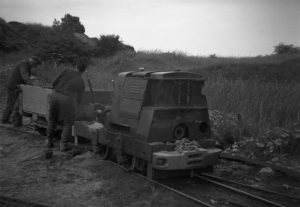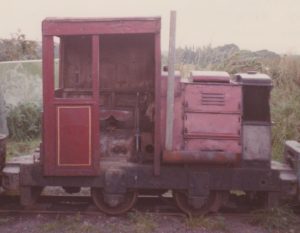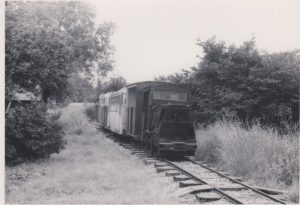‘CLWYD’.
Ruston & Hornsby Ltd, Works Number 264251, 4 Wheel Diesel Locomotive.
Formerly used at Burscough Brick and Tile Works, Burscough, Near Southport.
Ruston & Hornsby Ltd of Lincoln was a company formed by the amalgamation in 1918 of two long-established engineering companies: Ruston, Proctor & Company Ltd and Richard Hornsby & Sons. The economic depression of the 1920s forced the new company to look at diversification and it re-entered the market for building small internal combustion engine locomotives, especially narrow gauge ones. Both of the predecessor companies had been at the forefront of the development of such locomotives at the end of the 19th Century and during World War 1.
Ruston & Hornsby developed their own robust gearbox for small locomotives that was simple to operate and enabled the driver to shunt the locomotive accurately up to wagons whilst stood on the ground alongside. Their range of locomotives covered power ratings and gauges from 10HP and sub-2foot gauge to 275HP standard gauge. Their first narrow gauge locomotive was built in 1931 and the Company grew to become Britain’s largest builder of internal combustion locomotives.
Because of Hornsby’s and associates’ early work on compression ignition engines which predated that of Rudolf Diesel, Ruston & Hornsby were reluctant to use the term ‘diesel engine’. Ruston & Hornsby locomotives were therefore marketed for many years as ‘Oil Engines’.
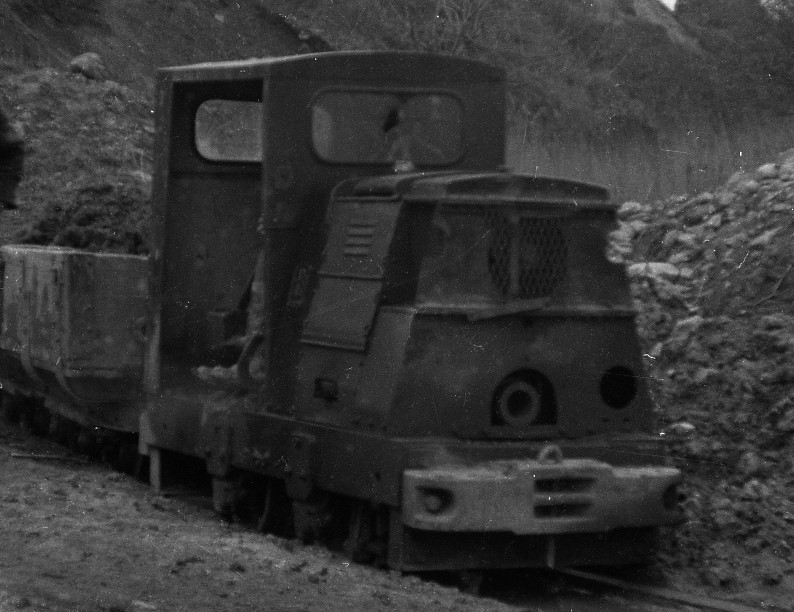
Locomotive working at Burscough Brick & Tile Works in 1965. The locomotive is fitted with its original Ruston cab.
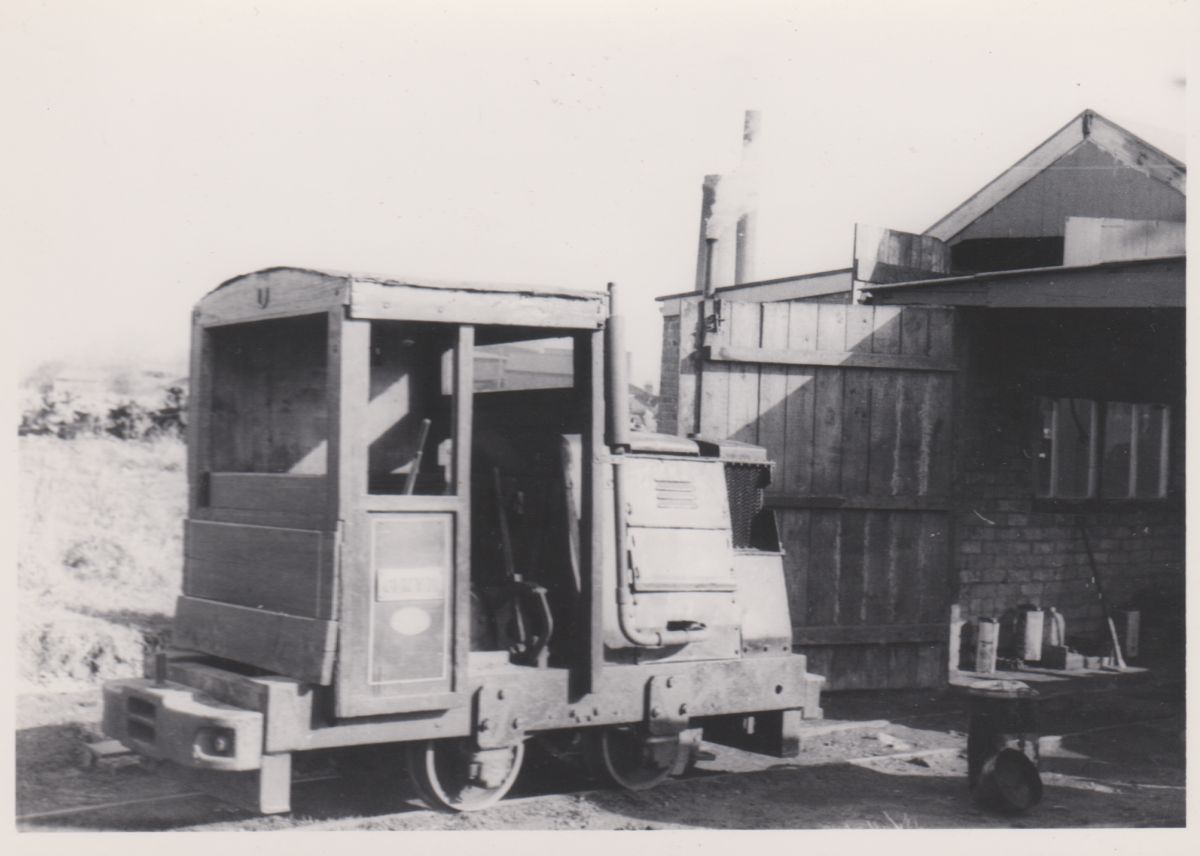
Clwyd at Hesketh Bank, early 1972. The locomotive has the wooden cab formerly carried by Tawd at Burscough.
Ruston & Hornsby narrow gauge locomotives were particularly successful and were used in a very wide range of applications, including: quarries, mines, peat bogs, brickworks, construction projects, sewage works and water works. Many locomotives were exported.
Locomotive Works Number 264251 was built in 1951 and is a 13DL locomotive (DL signifying a narrow gauge locomotive and 13 being the horsepower). These smaller horsepower locomotives were less popular than the 20HP ones and were discontinued; 264251 being in fact the penultimate locomotive of this Class. The locomotive was sold to J W Morris Co. Ltd., Penwyllt Limeworks at Craig-y-Nos in the heart of the Brecon Beacons Mountains and was fitted with a standard Ruston steel cab. In the early 1960s, it was sold to G Dew & Co. Ltd., a large and respected civil engineering contractor based in Oldham. Presumably surplus after working on a contract, the locomotive was then sold a few years later to the Burscough Brick & Tile Works Ltd. Its livery was then dark red and this may have been the paint scheme it was originally delivered in.
At Burscough, the locomotive took over the operation of the railway in the brickworks clay pit from the 20DL Ruston & Hornsby locomotive 222074 and worked until the railway closed in late 1967 or early 1968. In the last year, the locomotive had had its cab removed (presumably the driver had found it to be too hot during the summer).
Following closure of the railway, the locomotive was purchased by the group of narrow gauge railway enthusiasts who ultimately established the West Lancashire Locomotive Trust. The railway at Burscough was replaced by a rubber-tyred dump truck and the brickworks retained the locomotive cab to be fitted to the dump truck. The locomotive was bought for the princely sum of £25 and was moved to the West Lancashire Light Railway at Hesketh Bank on 6th April 1968.
Although the original cab was not acquired, the home-made wooden cab formerly carried by the 20DL locomotive was saved and was fitted to 264251 at Hesketh Bank. There, the locomotive acquired the name ‘CLWYD’ – the name of a river in North Wales. The nameplate (owned by a trustee) came from a derelict Fowler traction engine in Southport. The locomotive operated most of the passenger trains on the West Lancashire Light Railway from 1968 until 1980 when Irish Mail was taken into use.
As the first locomotive preserved by the West Lancashire Locomotive Trust, it has a very special status. The locomotive has had engine overhauls and other repairs carried out along with a replacement wooden cab, and is currently operational.

Clwyd at the 40th Anniversary of the West Lancashire Light Railway in 2007.

